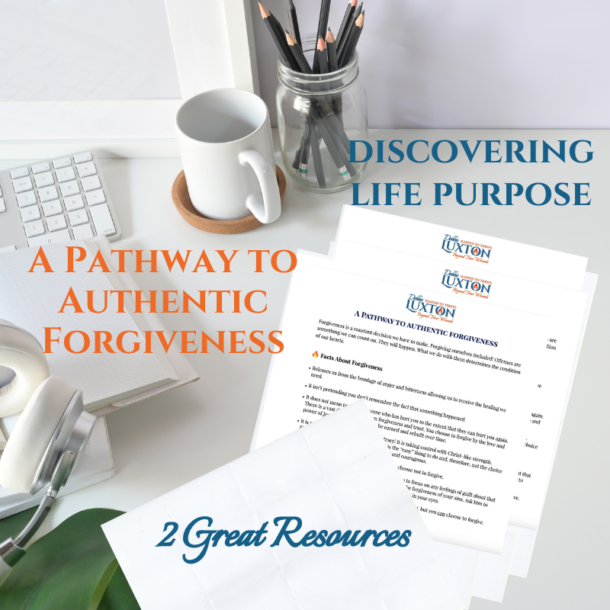“Accept: Don’t Do This!” – say what?
We’ve all heard over and over again that we are to “accept people where they are.” So, what does that mean?
To “bottom line” it – we are not to judge others or push them to be the version of themselves that we think they should be.
Judging, and gossip, is very often disguised as concern for other people. Be cautious of this. Wanting others to be the best they can be is the way it should be.
Unfortunately, sometimes we desire to help them a little too much and that becomes a control issue. Not good.
There are 2 points I want to make about what not to do when it comes to the acceptance of others.
Accept – yes. Indulge – no.
It can be difficult when someone in your life, especially someone you love, is engaging in destructive behaviors. It could be substance use/abuse, hurtful language, constant anger or any number of other actions.
Accepting the person that God created is difficult to do when a person is choosing to do things that bring harm to others. You can still accept and love the person, but you do not have to accept and love their choices.
When we accept others, we demonstrate love for them as a human being; as a person created by God with a God-given purpose. That does not mean everything another person chooses to do or say has to be accepted.
Don’t get me wrong; it is not your place to ensure other people make right choices, but it is your place to ensure those choices do not draw you away from who God has called you to be.
Proverbs 9:7-8 in the Message version tells us:
“If you reason with an arrogant cynic, you’ll get slapped in the face; confront bad behavior and get a kick in the shins. So don’t waste your time on a scoffer; all you’ll get for your pains is abuse.
But if you correct those who care about life, that’s different—they’ll love you for it!
Save your breath for the wise—they’ll be wiser for it; tell good people what you know—they’ll profit from it.”
Do not indulge someone by accepting their destructive behaviors. Contrary to what many people think, it is not loving someone to allow (indulge) hurtful actions to continue. It is a greater act of love to say, “I love you too much to take part in your hurtful behaviors.” More on this in next week’s article titled “Love: Do This!”
The above scripture is clear that there are people who aren’t going to listen and it’s unwise to try and make them listen.
I must say again, this does not mean you don’t accept them as the person God created. You are choosing not to accept their choices.
Accept That You Must Have Good Boundaries – Don’t Let Anyone Tell You Differently!
All healthy relationships have boundaries. If no boundaries exist, there is either blatant dysfunction or dysfunction is lurking.
It is not selfish to hold to your boundaries; some people may try to tell you it is. Having said this, this means you have set your boundaries through prayer and a heart that is focused on sound motives. Boundaries can be selfish if set from a mindset of trying to control or manipulate others.
What kind of boundaries should you have? Common relationship boundaries include:
– Finances: responsibilities in bills, spending, contributions/income
– Safety: yourself and those in your care
– Family (including distant): responsibilities, needs, like and dislikes
– Living Environment: cleanliness, organization, inviting spaces
– Personal / Professional Growth: learning through reading, classes, webinars
– Self-care: physical exercise, proper rest/sleep, eating right, personal growth
– Emotional Health: quiet time with God, meditation, prayer, support group
– Personal Values: peace and contentment requires that you protect your values
This is not intended to be an all-inclusive list, but I do hope it helps you think about what boundaries you may be missing.
Boundaries should not be decided upon, nor implemented, without proper communication.
Boundaries are critical in all areas of life. In relationships, they make the difference between strong healthy individuals living in strong healthy households and people who struggle to survive.
[stextbox id=”custom” bwidth=”3″ color=”FAFEFF” bcolor=”8C6727″ bgcolor=”50C7C3″ bgcolorto=”50C7C3″]If you rebuke a mocker, you will only get a smart retort; yes, he will snarl at you. So don’t bother with him; he will only hate you for trying to help him. But a wise man, when rebuked, will love you all the more. Teach a wise man, and he will be the wiser; teach a good man, and he will learn more.” ~ Proverbs 9:7-8 (TLB)[/stextbox]
Identifying, setting and maintaining healthy boundaries is my specialty.
Contact me TODAY if you need help in this critical area.
~~~
ONLY IN MAY!
2 FREE gifts for those who comment below on
EACH of the 5 blog articles this month
AND
share EACH of the 5 posts from my FB Page!
~~~
Previous Blog Articles in the REAL Relationships Series:
What is a REAL Relationship?
Responsibility: Own What’s Yours
Enlighten: Grace is Required



Setting firm and achievable boundaries has been very important in repairing the relationships in my life. I know many young adults who have no idea either how to set them or how to communicate them.
Hi Christina! I am with you. I, too, have experienced healing in relationships when I had the courage to implement and stick to boundaries. I was just praying this morning for an awareness about the “anything goes” mindset. It is being pushed so heavily and it causes so much harm. We certainly have no shortage of things we need to pray for.